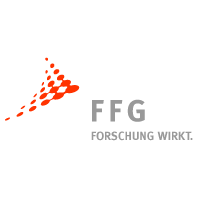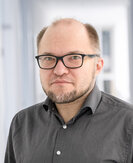IES Austria IES - Integrating the Energy System Austria
Motivation
Interoperability is essential for the success of the energy transition and contributes to the
investment protection for the users as well as the manufacturers. A normalized use of technical standards for interfaces and communication protocols is a central requirement for cost-effective system integration. Seamless interoperability in the Smart Grid is important, because the change takes place gradually and new components must be integrated into an existing system. The purpose of the project IES is the design of a modular process chain to achieve interoperability.
The description of the processes and the practical implementation is to be vendor-neutral, in order to ensure long-term interoperability and acceptance in energy domain. The transparency of the method
and the open database for technical specifications and profiles should be accessible for technology providers for interoperable products and services. In this way interoperability will create increasing competition with decreasing prices for better products on binding security level.
Technologies
As a basis in the project serve the standards of the CEN-CENELEC-ETSI Smart Grid Coordination Group (SGCG/M490) and the approach for interoperability of the IHE (Integrating the Healthcare Enterprise). Additionally, the EIF (European Interoperability Framework) recommends to formalize cooperation arrangements in interoperability agreements, addressing legal, organizational, semantic and technical interoperability. With the EIF and IHE process, there is a proper way to assess and test for interoperability of technical solutions that will be transferred to the Smart Grid domain during the project.
Funded by
EUROPEAN COMMISSION
This project „IES“ is completely conform with the latest press release from the European Commission „Commission sets out path to digitize European industry“ (Brussels, 19 April 2016) concerning its strategy to create a Digital Single Market europa.eu/rapid/press-release_IP-16-1407_en.htm
To reach this goal of comprehensive ICT standardisation Europe needs the convergence of the essential digital technology building blocks: 5G communication, cloud computing, IoT, (big) data technologies and cyber security to reach interoperability for the clearly named focal areas: Smart Energy, eHealth, Advanced Manufacturing and Intelligent Transport Systems. ec.europa.eu/digital-single-market/en/news/communication-ict-standardisation-priorities-digital-single-market
Goal
The purpose of the project IES is the design of a modular process chain to achieve interoperability, starting with the selection of use cases and the necessary standards for the realization, specification of a normalized use of these standards in interoperability profiles at different levels, their implementation, and ending with a demonstration of the test for interoperability.
This shall be done by transferring and adapting an established methodology from the healthcare sector to the energy domain. A result of the project is a detailed documented process for the normalized usage of standards for Smart Grids.
Internal Leader
External Leader
Dr. Angela BergerMatthias Frohner, Marion Gottschalk, Gerald Franzl, Richard Pasteka, Mathias Uslar, Stefan Sauermann; IEEE International Conference on Smart Grid Communications; 10 / 2017
Marion Gottschalk, Christina Delfs, and Mathias Uslar; 001 / 2017
Matthias Frohner; Marion Gottschalk; Georg Franzl; Karl Knöbl; Mathias Uslar; Stefan Sauermann; Angela Berger; Postersession der SESWA 2017 Graz; 08 / 2017
Gerald Franzl, Marion Gottschalk, Matthias Frohner, Valerie Reif, Georg Koch, Angela Berger; 15. Symposium Energieinnovation 2018; February / 2018
Marion Gottschalk, Gerald Franzl, Matthias Frohner, Richard Pasteka, Mathias Uslar; Energy Informatics; October / 2018
Marion Gottschalk, Gerald Franzl, Matthias Frohner, Richard Pasteka, Mathias Uslar; Methods and Concepts for Designing and Validating Smart Grid Systems; 12 / 2018
www.tiani-spirit.com
www.technikum-wien.at
www.sprecher-automation.com
www.aico-software.at
www.smartgrids.at
Contact
Duration
End: 31.05.2019
Source of funding

FKZ: 853693

